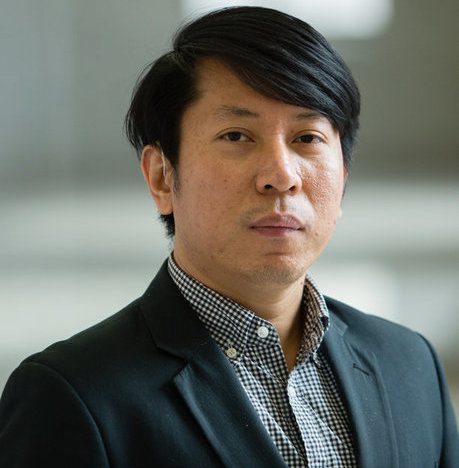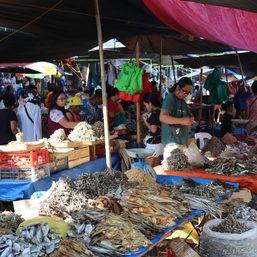SUMMARY
This is AI generated summarization, which may have errors. For context, always refer to the full article.
![[OPINION] Toughening OFW protection](https://www.rappler.com/tachyon/r3-assets/612F469A6EA84F6BAE882D2B94A4B421/img/15C42F9D7CA04EB487B19C6717EAA7B3/ofw-protection-copy-copy.jpg)

The successful repatriation of Jennifer Dalquez, the overseas Filipino worker (OFW) saved from death row in the United Arab Emirates (UAE), sheds light on how far the Philippines has gone to protect its unsung heroes.
In 1995, Flor Contemplacion was sentenced to death in Singapore. The case drew national outcry against the trial and failure of the home government to extend necessary assistance to the poor domestic helper. (READ: Overseas Filipinos and the death penalty: Cases that made headlines)
The case so angered then Davao City Mayor Rodrigo Duterte who led a protest in his city. Fast-forward to 2018, Duterte, now President, has put OFW welfare on top of his administration’s foreign policy agenda.
Convicted of murder for defending herself against a knifepoint rape attempt by her former employer, Dalquez spent almost 4 years in jail before an appellate court eventually acquitted her. Throughout her struggle, her home government had been with her.
Aside from providing legal representation and financial assistance to her and her family back home while her case was being heard, Philippine embassy officials made regular prison visits to check on her and had twice facilitated prison visits for her parents.
Her case vindicates the hard work put by relevant government agencies to exhaust all legal remedies to obtain her release. Such efforts are largely swept under the rug, drowned in the euphoria of her homecoming.
Critics unacquainted with the intricacies of host states’ legal culture and the intense diplomatic exertions at work to ensure fair trial for overseas Filipinos fail to appreciate the hard work that comes with every triumph.
A 2017 survey reported 2.3 million OFWs, more than 50% of whom are deployed in the Middle East. The UAE, for one, where Dalquez worked for 3 years before being imprisoned, accounts for the second largest destination of OFWs, hosting 15.3% of all deployment.
Last year, remittances reached a record high of 3 billion dollars, a 7.9% increase from last year. Remittances accounted for 10% of the country’s GDP and 8.3% of its Gross National Income.
Recognizing this critical contribution, protecting overseas Filipinos and promoting their welfare came second in the 3 pillars defining the country’s foreign policy. Under Philippine Chairmanship, ASEAN states signed the Magna Carta for Migrant Workers last year.
Last August, Manila hosted a Conference on the Future of Migration, building momentum for the signing of the Global Compact for Migration this December in Marrakesh, Morocco.
Duterte already paid visits to 4 of the top 10 largest destinations for overseas Filipinos – Saudi Arabia, Malaysia, Qatar and Singapore.
In all his foreign trips, he also made it a point to meet the local Filipino community. Nevertheless, while the effort to entice OFWs to return home to a more burgeoning economy is laudable, better opportunities abroad will continue to motivate labor outflows.
Under Duterte, budget for OFW assistance increased from P400 million to more than a billion.
A Bilateral Labor Agreement providing better work conditions for Filipinos in Kuwait was secured after a bitter row over the murder of an OFW. Thousands of stranded OFWs were granted amnesty and repatriated home.
Philippine Overseas Labor Offices and recruitment agencies were asked to provide assistance to defray legal costs of OFWs facing charges and facilitate repatriation for those fleeing abusive employers. Reintegration programs for returning OFWs were also rolled out.
Aside from increasing the Assistance to Nationals (ATN) fund to a billion, the Legal Assistance Fund (LAF) also doubled from P100 million to P200 million.
Guidelines on fund use were also revised to allow even undocumented OFWs, such as human trafficking victims, to access the fund. Coverage of LAF was expanded to include interpreters or translators, public information campaigns and assistance for appeal. Caps on professional fees, litigation expenses, and other legal fees were also relaxed. A great deal of these measures and reforms played out in Dalquez’ case.
Indeed, despite difficulties and persistent challenges, government efforts to protect OFWs continue to decisively progress. – Rappler.com
Lucio Blanco Pitlo III is a foreign affairs and security analyst. He is a lecturer at the School of Social Sciences at the Ateneo de Manila University and a research fellow at the Asia-Pacific Pathways to Progress Foundation
Add a comment
How does this make you feel?
![[ANALYSIS] A new advocacy in race to financial literacy](https://www.rappler.com/tachyon/2024/04/advocacy-race-financial-literacy-April-19-2024.jpg?resize=257%2C257&crop_strategy=attention)


![[In This Economy] Can the PH become an upper-middle income country within this lifetime?](https://www.rappler.com/tachyon/2024/04/tl-ph-upper-income-country-04052024.jpg?resize=257%2C257&crop=295px%2C0px%2C720px%2C720px)

There are no comments yet. Add your comment to start the conversation.